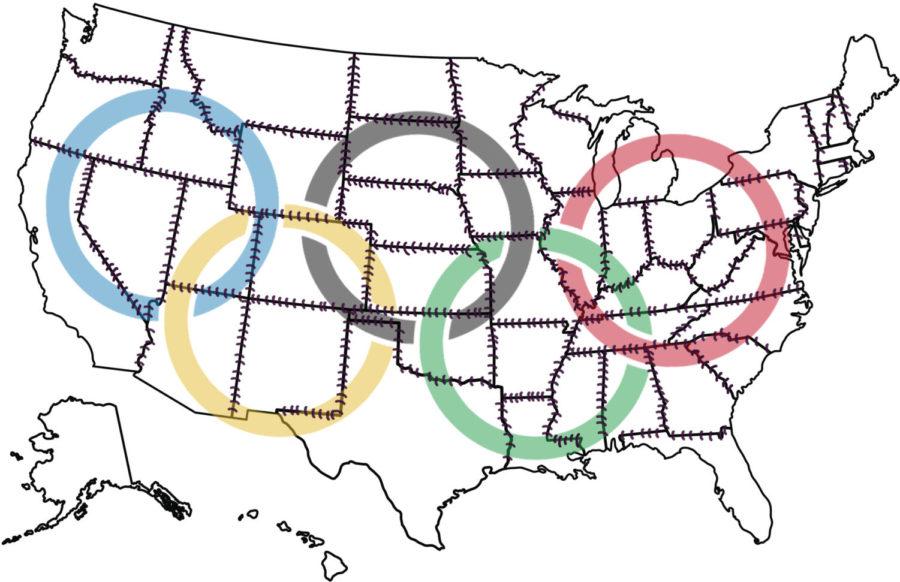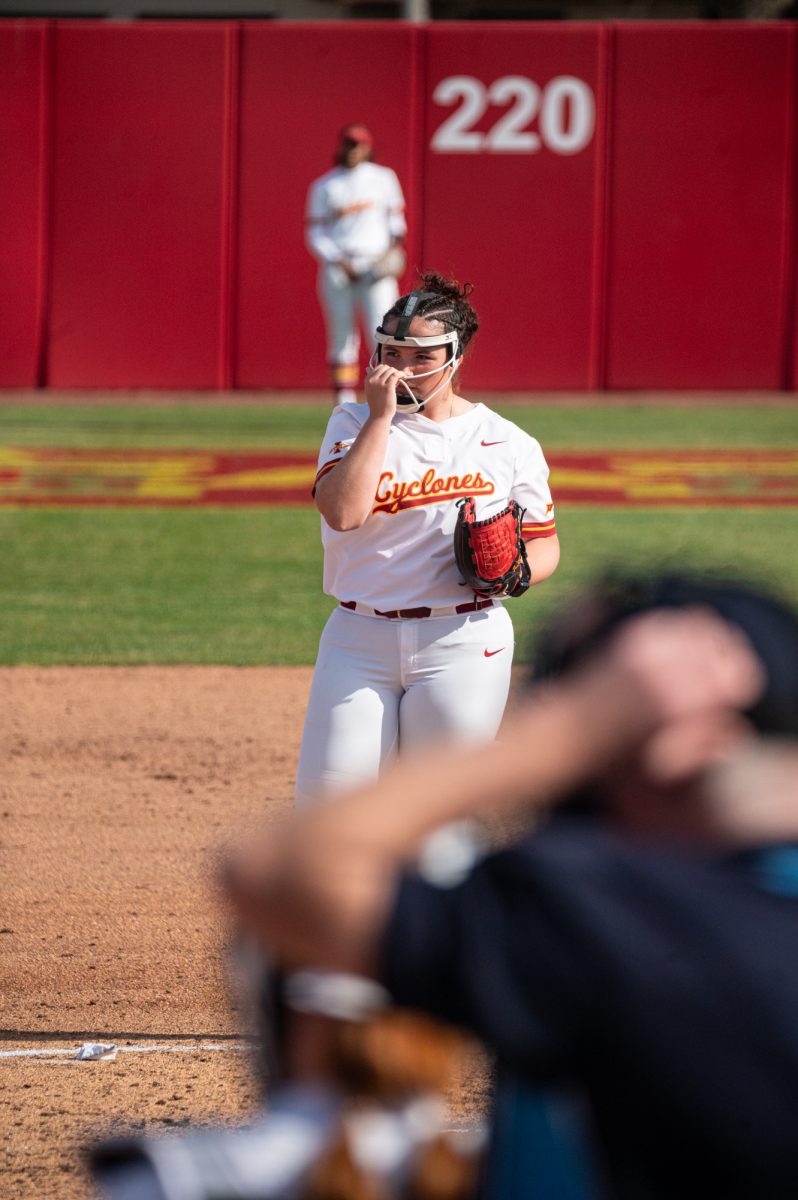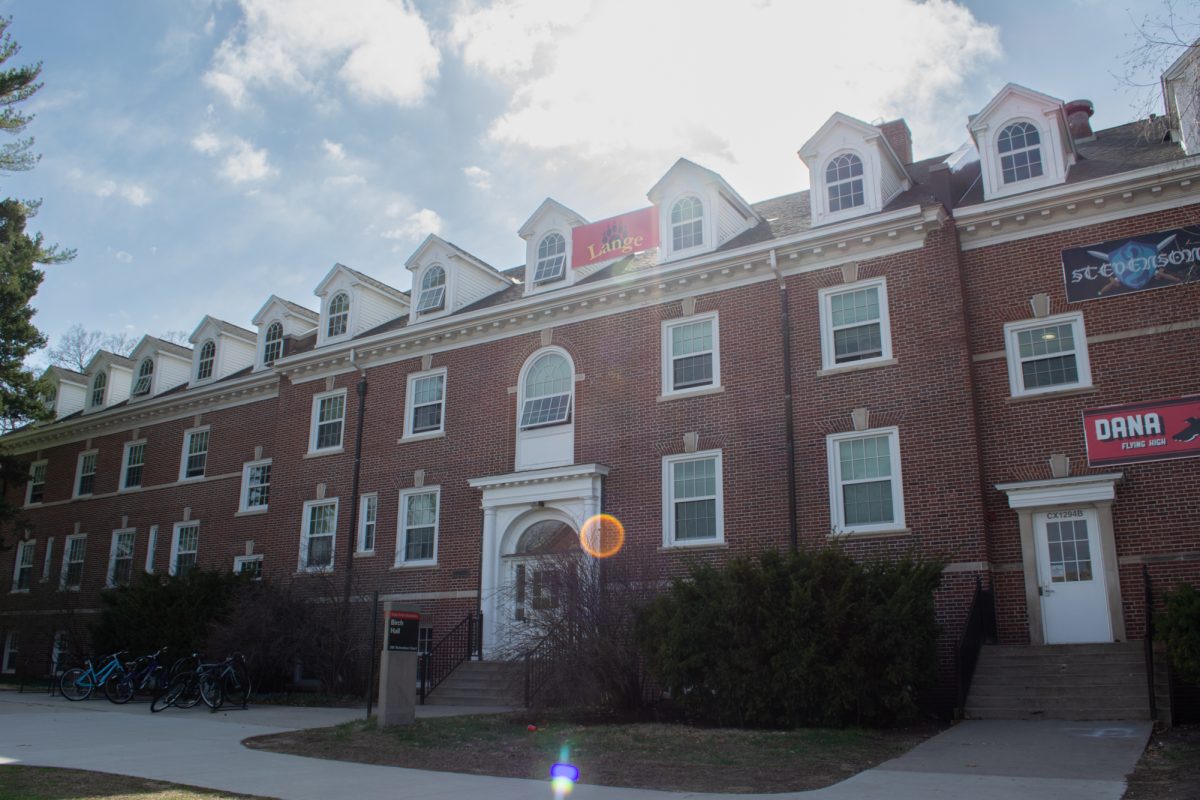Editorial: Olympic competition, the great unifier
Graphic: Megan Wolff/Iowa State Daily
Graphic: Megan Wolff/Iowa State Daily
July 26, 2012
Friday will see the beginning of the games of the 30th Olympiad in London.
For the following two weeks, over 10,000 athletes from all around the world will compete in virtually every summer sport imaginable, from synchronized swimming to marathons, from boxing to basketball. Between now and Aug. 12, people in their homes all around the world will watch games they don’t understand, governed by rules they haven’t a clue about.
But perhaps most importantly, we will all root and cheer for men and women we have never heard of, just because they compete underneath the flag of our country.
The major defining characteristic of the Olympics is they are amateur in nature. The competing athletes are, for the most part, nonprofessionals in their sports. They pay for their own coaching, equipment and training which is usually terribly expensive. They often hold down real jobs on the side, training when they’re off the clock. The only support they have, until they actually make the Olympic team, comes simply from equally dedicated friends and family.
The character of this amateurishness completely forges the particular bond we have to the Olympics and our Olympians. With professional athletes, who are typically paid excessively for their efforts, whose full-time job is their sport, and who receive the best training money can buy for free, our relationship with them is different.
When someone from Nigeria is chosen to play for the New York Knicks, Knicks fans don’t care he’s from Nigeria. When a Honduran plays for the Boston Red Sox, Sox fans don’t concern themselves about his southern citizenship. And Detroit Red Wings fans definitely don’t care when a Russian or a Frenchman plays hockey for their team either.
When a professional athlete signs his contract, his nationality or state of birth becomes irrelevant. Their identity is suddenly inexorably infused, overwritten even, with the identity of their new adopted home. With Olympians though, the case is reversed.
The Nigerian living in New York goes home to compete for Nigeria, the Puerto Rican living in Boston goes home to Puerto Rico, and so forth. Expatriated Americans return home to compete in our trials to earn the honor of representing the very place they’re from. The Olympics, then, are a great expression of national pride, opposed to the celebration of the highest bidder.
And so it is, when in a week from now the discussion around the water cooler will be, “Hey, did you see that we got gold in Women’s Fencing?” “Yeah,” will be the reply, “I’m so excited she won!”
Americans who have never touched a fencing foil or sabre will suddenly give a damn about the girl in the white suit, whose face is covered by that bulbous black mask, her long blonde hair peeking out a little from underneath serving as the only suggestion of the identity of the competitor. For a few days, we will become fencing fanatics. And archery aficionados, and shot put supporters.
Michael Phelps will get his share of the spotlight indeed; the next Shawn Johnson will rise to the top and grace Wheaties boxes for months or years to come. But so will the currently unknown athletes in the currently unknown sports.
The classical liberal philosophy that gave birth to our nation speaks to us about the virtues of the individual. As a country we believe that with enough hard work and determination, anyone can do anything. And that’s what Olympic competition is all about: Even the littlest guy or gal in the most marginalized sport can make it to the top, unite us into a single 300 million person team and lead us, the entire United States of America.
We cry with them as the national anthem plays as the Stars and Stripes are hoisted into the air. We love them because they are one of us, and, at least spiritually and philosophically, we’re right there on that podium with them.
Certainly sports tropes are done to death and are cliches of cliches by now. But maybe, just maybe, in an election year immersed in the most polarized time in American history since the Civil War, there’s something we can learn about government from a javelin thrower.
Enjoy the games, Iowa State. Republican, Democrat or otherwise, we’ll be cheering right along with you.







